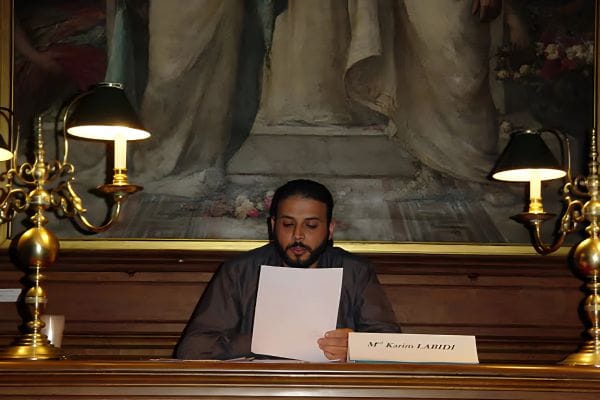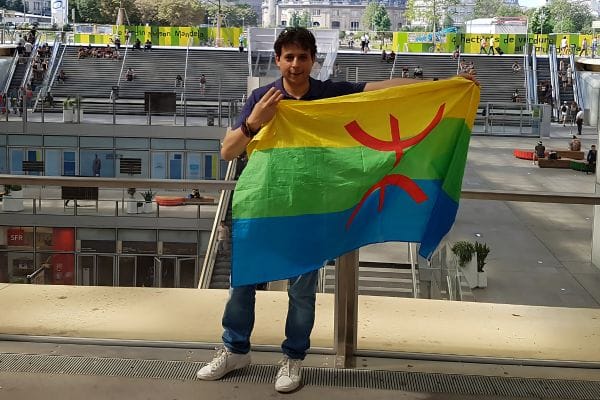Biography
The Official Portal of Massin Kevin Labidi
Biography
Massin Kevin Labidi, formerly known as Mohamed Karim Labidi, in Tifinagh characters (ⵎⴰⵙⵉⵏ ⴽⵉⴼⵉⵏ ⴰⵍⵄⴱⵉⴷⵉ), he was born on August 4, 1966, in Tunis. He is a Tunisian-Dutchman of Amazigh descent.
This platform is a window that sheds light on his career as a political activist and blogger known for his critiques, as well as his intellectual journey, which saw him renounce Islam in 1998 and announce his atheism.
He summarizes his belief, which he refers to as “Atheistic Faith“, with the following statement: “No one is the master of anyone, each is the master of themselves.“
Key milestones in his life:
- Upbringing and Islamic Orientation:
Massin was raised in a traditional Sunni family in Tunisia as one of nine siblings. He was influenced by his sister Samira, who was married to Salah Karker, one of the leaders of the Ennahda Movement. He studied Shia Islamic thought in Iran and became involved with Shia political networks. - Political Engagement:
Massin participated in political Islamic activities in collaboration with Iran and the Ennahda Movement before being arrested in Tunisia in 1987. After his release, he abandoned Shia networks and became influenced by Sufism and Gnosticism during his travels across Morocco and other countries.
Criticism of Islam:
Massin declared his atheism in 1998 and began criticizing political Islam. In 2001, he founded the first association for ex-Muslims in Tunisia. However, the authorities banned his activities in 2006 and placed him under informal house arrest until 2011.
Political and Cultural Activities:
- Massin sought asylum in the Netherlands in 2012 and legally changed his name to Massin Kevin.
- In 2015, he established the “MCAN” movement to advocate for Amazigh rights and individual freedoms.
- He participated in conferences and demonstrations supporting Amazigh rights, gender equality, and freedom of expression in Tunisia, Morocco, and across Europe.
Books and Media Presence:
- Massin authored the book “My life, my Tunisia “, which recounts his experience with political Islam.
- He actively manages YouTube channels and social media platforms where he critiques Islam and discusses political and cultural issues.
This is an ad

